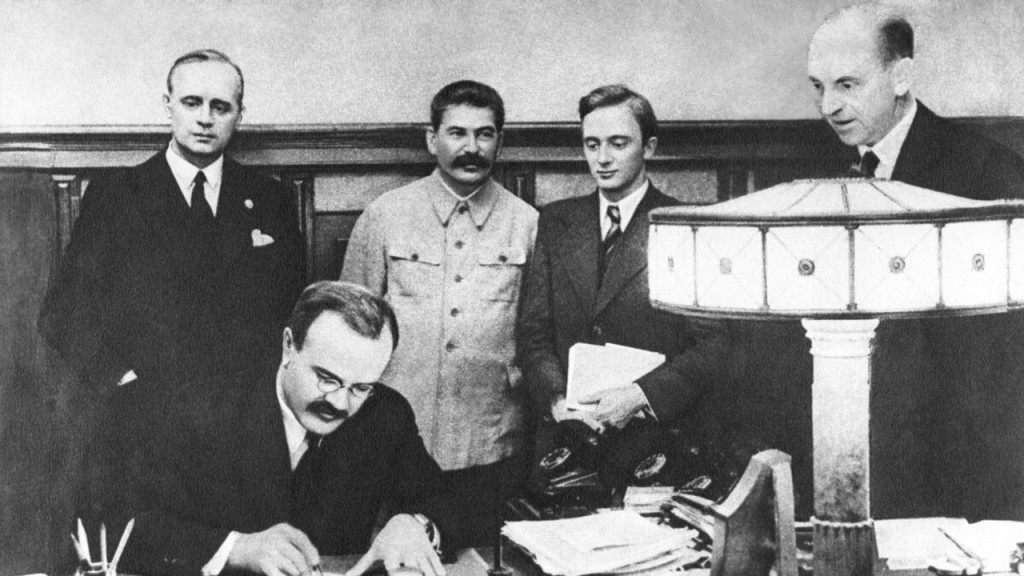RIBBENTROP-MOLOTOV PACT: IMPACT ON MOLDOVA AND WORLD WAR II
On August 23, 85 years will have passed since the signing of the so-called Ribbentrop-Molotov Pact by the Foreign Ministers of Nazi Germany and the Soviet Union.
This document gave Germany the green light to attack Poland, thereby triggering the Second World War. Simultaneously, the USSR took part in the division of Poland and gained free rein to annex the Baltic States, Bessarabia, and Northern Bukovina. According to historians, the signing of this pact had devastating consequences for the territory that is now the Republic of Moldova, as the local population was subjected to repressive Soviet policies.
Also known as the Stalin-Hitler Pact, the document contained an additional secret protocol that placed Romania, Poland, Lithuania, Latvia, Estonia, and Finland within the spheres of influence of Germany and the Soviet Union.
Just nine days after the signing of the Ribbentrop-Molotov Pact, on September 1, 1939, German forces attacked Poland, initiating the Second World War. In response, Great Britain and France, allies of Warsaw, declared war on Germany.

On September 17, the Red Army entered the eastern part of Poland. In November of the same year, Stalin attacked Finland, and in June 1940, the Soviets annexed the Baltic States. Toward the end of June, the Soviet Government demanded that Romanian authorities immediately withdraw from Bessarabia and Northern Bukovina.
Under the pressure of ultimatum notes and in the context of the country’s international isolation, Romania was forced to cede these territories to avoid war and bloodshed. A year later, on June 22, 1941, Romania entered the Second World War on the side of Germany, attacking the USSR to recover its territories.
As a result of this pact, the Soviet Union initiated the disintegration of Romania, historian Ion Valer Xenofontov stated in an interview with Radio Moldova.
“Bessarabia was a disputed issue between Romania and the Soviet Union. After the signing of this additional secret protocol, Europe was divided between the USSR and Germany. Both sides sought to ensure that they would not attack each other.”
The territory of what is now the Republic of Moldova is the result of the agreements signed by Hitler and Stalin on August 23, 1939. Following the annexation of Bessarabia by the USSR, the native population was subjected to deportations, political repression, organised famine, forced labour in communist gulags, industrialization, and collectivization.
To commemorate the victims of the two major totalitarian regimes in Europe, the European Parliament adopted “The European Day of Remembrance for the Victims of Stalinism and Nazism” in 2008.
Translation by Iurie Tataru
Sursă: https://radiomoldova.md/p/39084/ribbentrop-molotov-pact-impact-on-moldova-and-world-war-ii
